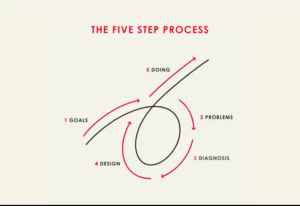The Four Agreements, bestselling author don Miguel Ruiz reveals the source of self-limiting beliefs that rob us of joy and create needless suffering. Based on ancient Toltec wisdom, The Four Agreements offer a powerful code of conduct that can rapidly transform our lives to a new experience of freedom, true happiness, and love. In the book The Four Agreements has sold over 52 million copies and is printed in 38 languages. Who are the Toltecs you might ask? Beginning in the 12th century, the invasion of the nomadic Chichimec destroyed the Toltec leadership in central Mexico. Among the invaders were the Aztecs, or Mexica, who destroyed Tollan about the mid-12th century. See also Mesoamerican civilization.
languages. Who are the Toltecs you might ask? Beginning in the 12th century, the invasion of the nomadic Chichimec destroyed the Toltec leadership in central Mexico. Among the invaders were the Aztecs, or Mexica, who destroyed Tollan about the mid-12th century. See also Mesoamerican civilization.
First, here they are:
1. The First Agreement: Be Impeccable with Your Word
2. The Second Agreement: Don’t Take Anything Personally
3. The Third Agreement: Don’t Make Assumptions
4. The Fourth Agreement: Always Do Your Best
Alright. Now in a little more detail.
The First Agreement: Be Impeccable with Your Word. What’s that mean? Well, Don Miguel tells us that the word “impeccable” literally means “without sin.” In this context, we’re talking about being in integrity with your highest self. To not “sin” against that best version of you. Starting with how you communicate with yourself and others.
In short: No complaining. No criticism. No blaming. No gossiping. Ever.
It’s “the most important one and also the most difficult one to honor. It is so important that with just this first agreement you will be able to transcend to the level of existence I call heaven on earth.”
The Second Agreement: Don’t Take Anything Personally. Don’t take anything personally? Yah. Don’t take anything personally. Period. Fact is, how someone responds to you often says more about THEM than it says about you.
As Ruiz says: “Nothing other people do is because of you. It is because of themselves.”
The Third Agreement: Don’t Make Assumptions. Want a quick way to get in trouble? Make assumptions about someone else’s behavior. Notice how often we do that. And, do we assume the best? No. We assume the worst.
Solution: “The way to keep yourself from making assumptions is to ask questions. Make sure the communication is clear. If you don’t understand, ask. Have the courage to ask questions until you are as clear as you can be.”
The Fourth Agreement: Always Do Your Best. Don Miguel tells us that it’s the Fourth Agreement that brings the prior three to life. Want to engrain your new way of being? Do your best. Moment to moment to moment.
And, remember that sometimes your best will be ridiculously awesome. And, at other times it won’t be so awesome.
But: “Under any circumstance, always do your best, no more and no less. But keep in mind that your best is never going to be the same from one moment to the next. Everything is alive and changing all the time, so your best will sometimes be high quality, and other times it will not be as good.”
Which one of these four agreements need some extra work in your life and leadership. Pick One – Let’s go out and make a difference in our world.






